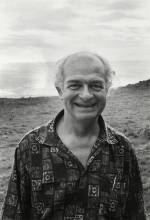| Resignation and Recreation |
|
Pauling spent the decade from 1963 to 1973 in flux. His liberal politics and scientific
work on mental diseases caused him professional problems at Caltech after the mid-1950s.
In response to Pauling's alleged association with communism, Caltech administrators
stopped giving him pay raises, and in 1958 Pauling reluctantly agreed to resign as
Chairman of the Chemistry Department. In 1963 administrators needed more work stations
in the chemistry laboratories, and the new Chairman of the Chemistry Division informed
Pauling that some of his laboratory space being used for research on mental diseases
was needed for research in other areas.
Additionally, Pauling had been diligently pursuing peace work in the political arena
since the late 1940s, and in 1963 he was awarded the 1962 Nobel Peace Prize. Caltech's
overall reaction was lukewarm at best and deeply upset Pauling. Spurred by the monetary
award he received with the Nobel Peace Prize, Pauling resigned from Caltech shortly
thereafter.
For ten years Pauling worked at various institutions in California before deciding
to start his own, eventually named the Linus Pauling Institute of Science and Medicine.
Arthur Robinson helped Pauling start the Institute in 1973; Robinson had been an undergraduate
at Caltech in the early 1960s and went to University of California at San Diego (UCSD)
for his graduate degree and stayed there to teach. While Robinson was at UCSD, Pauling
also taught there and influenced Robinson to pursue orthomolecular medicine. When
Pauling left San Diego for Stanford University, Robinson followed. Robinson oversaw
the daily administration of the Institute for its first five years, when it was located
near Stanford University.
|
|
Click images to enlarge

Linus Pauling on the beach at Big Sur, California. 1964.

Arthur Robinson in a laboratory at the Linus Pauling Institute of Science and Medicine. 1974.
"To my surprise, I recieved the Nobel Peace Prize. I was at my home here in Salmon
Creek, and I got back to Pasadena a couple of days later, and I was shown a copy of
the Los Angeles Times where the president of the institute, Lee DuBridge said, 'It's
really remarkable that any person should get two Nobel prizes, but there is much difference
of opinion about the value of the work that Professor Pauling has been doing.' That's
the work for world peace, you know. Well, I thought, that's a little too much so
I decided to resign from the institute....DuBridge's statement caused me to make that
decision."
|

